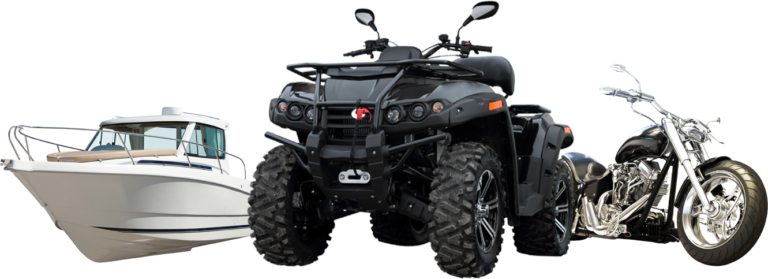QUOTE OR BUY A
POLICY IN ABOUT
3 MINUTES!
Motorcycle Insurance
Motorcycle insurance policies are designed to cover motorcycles and scooters that are built in a factory by traditional manufacturers. It may also cover custom-built bikes. Most policies will also cover an attached sidecar. In general, a different type of policy will be needed for ATVs and four-wheelers.

How Does It Work?
Those who own a motorcycle are required by all states to have a basic motorcycle policy that protects other persons if their property is damaged or if they are injured while you are riding your motorcycle. This type of coverage is known as liability coverage. If you are driving your motorcycle, and you are involved in an accident that is determined to be your fault, liability insurance will cover the damage to the other vehicle or property.
In addition to basic liability coverage, motorcycle policies may be purchased that provide collision coverage. This covers you if your motorcycle is damaged in an accident. Collision coverage comes with a deductible. For instance, you may have a $500 deductible. This is the amount of the damages that are your responsibility. After the deductible is met, your insurance pays the additional amount over the deductible to repair your motorcycle. If you are at fault in an accident, you need collision coverage to receive help with repairing your motorcycle.
You may also wish to purchase comprehensive coverage for your motorcycle. This provides coverage for theft, vandalism, fire, hail, and some other hazards. As with collision coverage, comprehensive coverage has a deductible attached with it. Neither basic liability nor collision coverage provides payment for these types of losses.
Uninsured/underinsured motorist coverage helps to cover the cost to repair your motorcycle if another driver does not have sufficient insurance coverage to pay for your damages. It also helps if the other driver is not insured at all.
Another important coverage to consider when purchasing motorcycle insurance is roadside assistance coverage. When you have this type of coverage, you will be able to receive help in certain roadside emergencies. Towing and jump starts are important parts of this type of motorcycle coverage.



